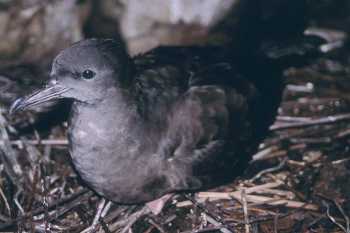Matthieu Le Corre (Université de La Réunion, Laboratoire ECOMAR, Saint Denis, Réunion Island, France) and colleagues writing in-press in the journal Biological Conservation have tracked seabirds, including the Wedge-tailed Shearwater Puffinus pacificus, an ACAP potential candidate, in the western Indian Ocean and identified foraging hotspots considered high-priority locations for designation as Marine Protected Areas (MPAs).
The paper's abstract follows:
"We conducted a regional tracking program on seabirds in order to identify major forging [sic] hotspots and potential Marine Protected Areas in the tropical western Indian Ocean. Thirty-one species of seabirds breed in the region, totaling 7.4 million pairs. The main breeding grounds are in the Seychelles, in the Mozambique Channel and in the Mascarene. Seven pelagic species have been tracked so far from eight different islands of the region. Using count per sector analysis we identified five major oceanic foraging hotspots, among which three include the breeding colonies and two are oceanic areas not connected to a breeding island. We found important overlaps between most of these seabird foraging hotspots and potential threats (industrial fishery targeting surface dwelling tunas and marine pollution due to maritime routes) suggesting that in these regions seabirds may be at risk when foraging. Although this analysis is based on a limited number of tracking studies, the knowledge on seabird distribution at sea has increased tremendously in the last 6 years in the tropical western Indian Ocean, and this trend will continue, as research is ongoing. The data, we present here for the first time in a single synthesis show clear spatial patterns that identify high priority locations for designation as Marine Protected Areas in the tropical western Indian Ocean."

Wedge-tailed Shearwater. Photograph by Alan Burger
Reference:
Le Corre, M., Jaeger, A., Pinet, P., Kappes, M.A., Weimerskirch, H., Catry, T., Ramos, J.A., Russell, J.C., Shah, N. & Jaquemet, S. 2012. Tracking seabirds to identify potential Marine Protected Areas in the tropical western Indian Ocean. Biological Conservation doi:10.1016/j.biocon.2011.11.015.
John Cooper, ACAP Information Officer, 27 November 2012

 English
English  Français
Français  Español
Español